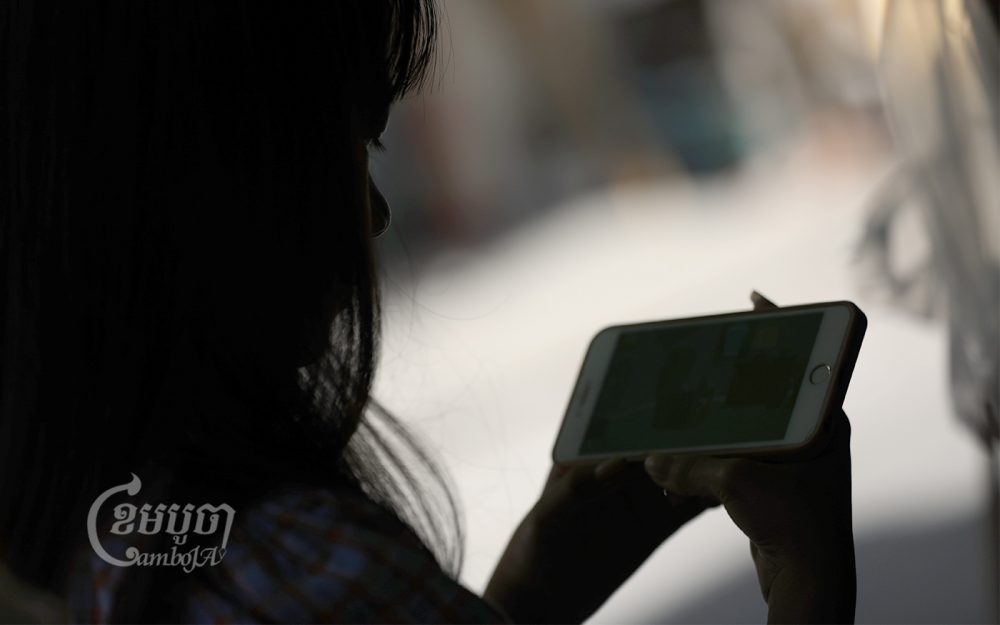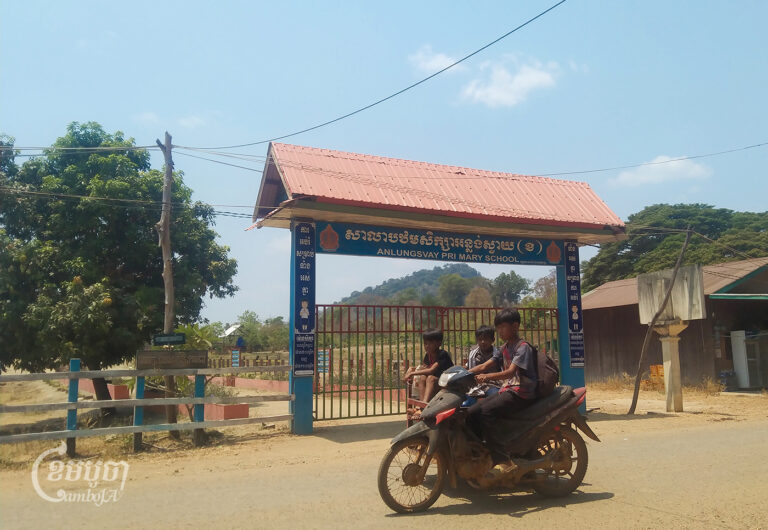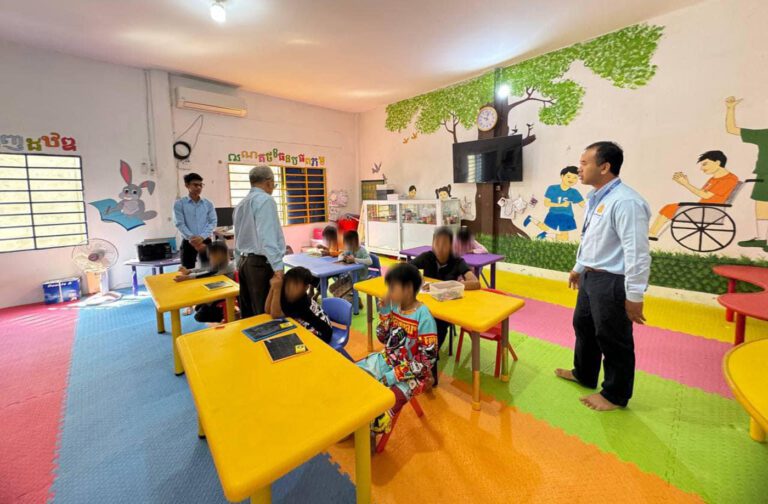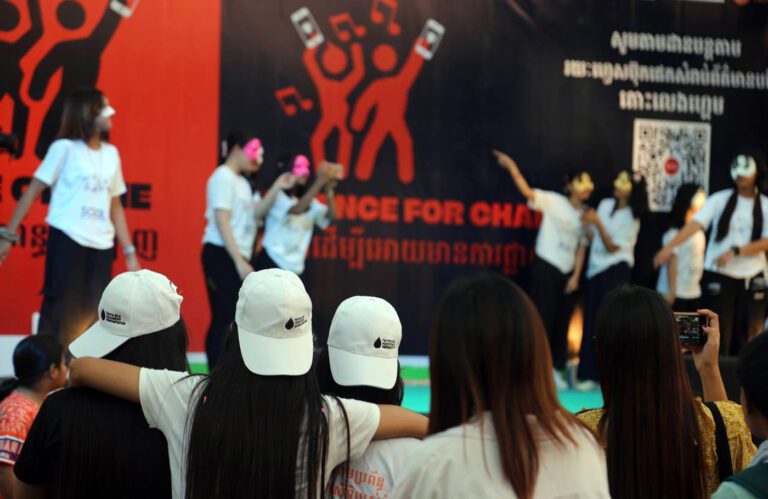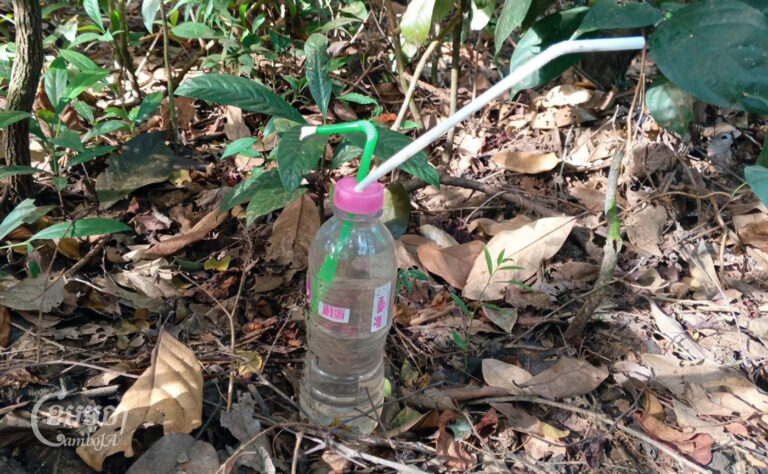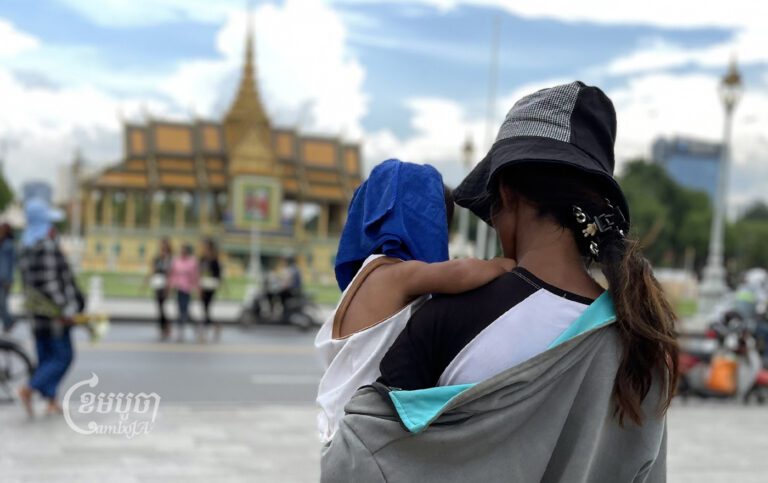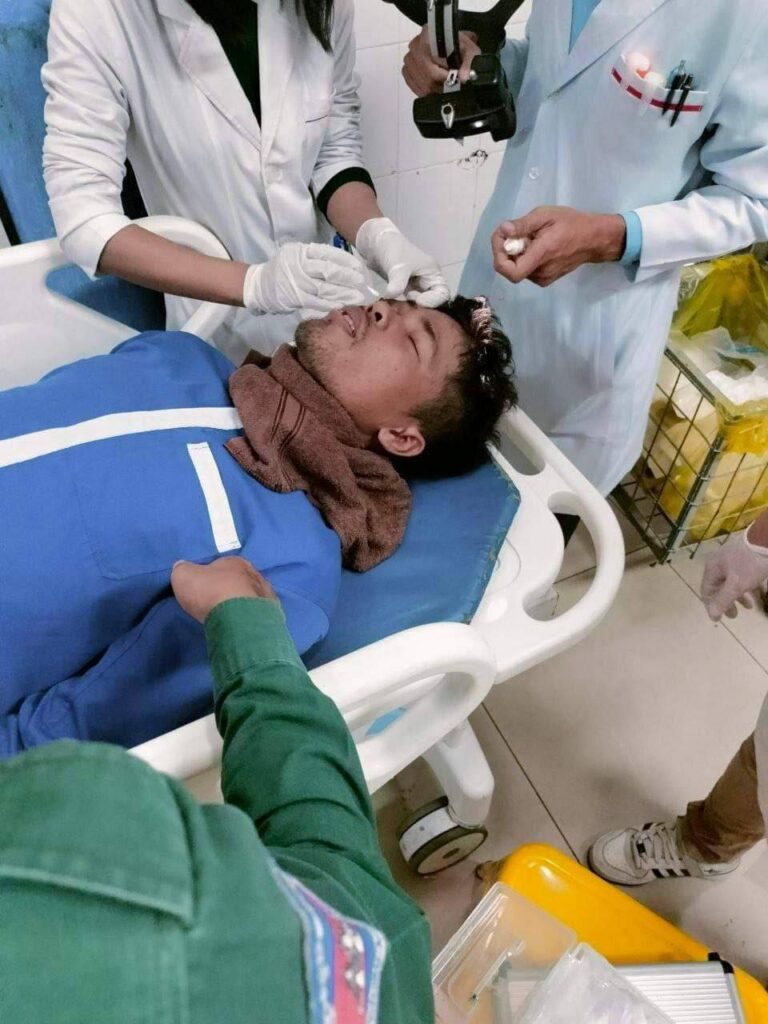Sorn Sok Kheang, a 29-year-old video producer in Teuk Thla commune of Sen Sok district, was worried and upset when she noticed her son was slow to speak in his early years. Up to the age of three, sometimes all he said was “dad” and “mom” in a day. When she consulted specialists, they told her he had autism.
During the weekends, she and her husband made it a point to turn off their mobile phones to spend time with their son, who is now five years old. Her son, however, was not completely disconnected. “Sometimes we wanted him to be happy. We played music for him to dance and listened to music on the computer, but we did it indirectly and we did not let him touch [the devices],” Sok Kheang said.
Hoeur Sethul, President of the Cambodia Association for Counsellors & Psychologists, said that despite widespread assumptions, mobile phone use itself does not cause autism in children. He said the Diagnostic and Statistical Manual of Mental Disorders, published by the American Psychiatric Association, shows that autism is congenital – children are born with it.
However, according to him, the overuse of mobile phones can affect a child’s development, whether they have autism or not. He described the usage of mobile devices as a passive one-way exchange, unlike the act of both giving and receiving in face-to-face communication. For this reason, he said, some children are slow to develop in communication, character, and physical activity.
“Technology can contribute to a child’s development, but too much of it can be a problem,” Sethul said, adding that they should be limited in the duration of their usage as well as the type of videos they watch.
He said that education and treatment could help children improve – even if they were born with autism.
Sok Kheang thinks that her son’s autism could partly be attributed to her and her husband’s busy lives: they spend more time at work than with their children. They often leave their son with Sok Kheang’s mother while they are working during the day.
Noticing his difficulties, they decided to enroll him at King Kids School, a school in Phnom Penh Thmey commune of Sen Sok District, that is more familiar with how to care for kids with autism.
“This school teaches our child how to dress, how to be willing to go to school, and how to love himself, his classmates, and his teachers,” Sok Kheang said. “A youngster with special needs, he needed to enroll in class quickly, but we didn’t find out until he was three years old.”

Sethul said that autism is “mostly a developmental abnormality in a child’s nervous system” – and differentiates it from a disease. He said 10 different autistic children can exhibit very different behaviors, and careful discussion with a specialist is required to determine whether a child, in fact, has autism.
He explained that autism refers to a broad range of conditions. Children with autism might have problems with language, social skills, and repetitive behaviors. In addition, their five sense organs – eyes, ears, nose, tongue, and body – might have evolved differently.
“Do not try to make inferences, because guessing which child has autism is placing a burden on them and their parents. It affects the parent’s mood and the child’s mood, and allows people around them to look at them in a different way, causing them to suffer from social stigma,” he cautioned.
But Sokheng, another mother of a child diagnosed with autism, creates videos about autism on her Facebook page. She also works as a teacher for children with special needs in the Russey Keo district.
Sokheng said that from her experience with her son, a child with autism might exhibit limited vision and language, as well as a limited capacity to converse or play with other kids. They may also sometimes play continuously, or play in a straight line, and may be constantly moving their arms, jumping about, or turning their bodies.

Sokheng said that from her own observations, working parents tend to replace their presence with smartphones and other electronic devices, which are a barrier to their children’s knowledge of how society really works. This causes weak and slow communication and language skills in children, as well as impatience, frustration, and anxiety. She added that allowing children to use mobile devices can prevent them from learning about their environment according to their natural age.
She said that since his birth, her son, Sakada, did not cry. When she breastfed him, he was not very active. He also did not talk very much until he was almost four years old.
“As a mother who has a son with autism, I would like to encourage parents with this problem to not despair,” Sokheng said. “Of course, autism cannot be cured, but your child will get better through specific alliances and design teaching from experts.”
Nowadays, Sakada is better. He can communicate and is able to express his needs, and he can do a lot of things independently, such as wearing shoes, bathing, dressing, brushing his teeth, and eating.

Chan Sarin, Director of Krong Takhmao Special Education High School and President of Autism Network Cambodia, said that parents could try to identify autism symptoms in their children when they are 18 to 24 months old.
He said that they may have social difficulties others do not have. They may not be very talkative or express their opinions or respond very much when spoken to – possibly due to their limited language capacity. They may not look directly at a person or share their personal feelings with others; many autistic children may not understand the feelings of those speaking to them.
There are currently 215 students with autism, 56 of them girls, at Krong Takhmao Special Education High School, in Kandal province.
Many children – most of them three to seven years old – with autism have been enrolled at the school in accordance with the inclusive education policy of the Ministry of Education, Youth and Sports.
However, Sarin said more than 200 students are still on the waiting list of enrollment because of the lack of facilities and teachers. He also said that additional buildings, including residential and school buildings, will be constructed due to the strong support of the ministry.
Ros Soveacha, the ministry’s spokesperson, told CamboJA that the ministry has continued to expand the scope of special education according to educational needs and practical resources available, in line with the Strategic Plan for Education 2019-2023.
According to Yeap Malyno, President of the Welfare of Person with Disabilities Department, there are an estimated 1,313 people with autism in 18 provinces and cities throughout Cambodia, of which 372 are female and 941 male. Research on seven other provinces are ongoing.
Soveacha added that special education plays an important role in equipping students with special learning needs to participate in Cambodia’s economic development in the future. He highlighted the contribution of Krong Takhmao Special Education High School in reducing the poverty level of parents with children with disabilities, in line with the Strategic Plan and the Sustainable Development Goals for Education 2030.


